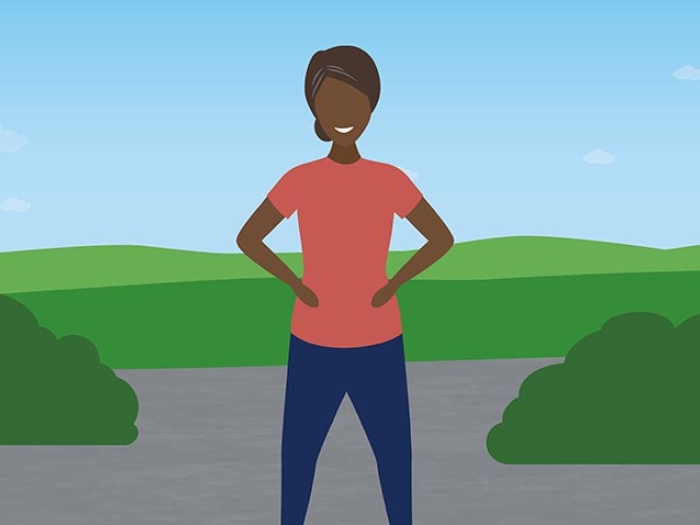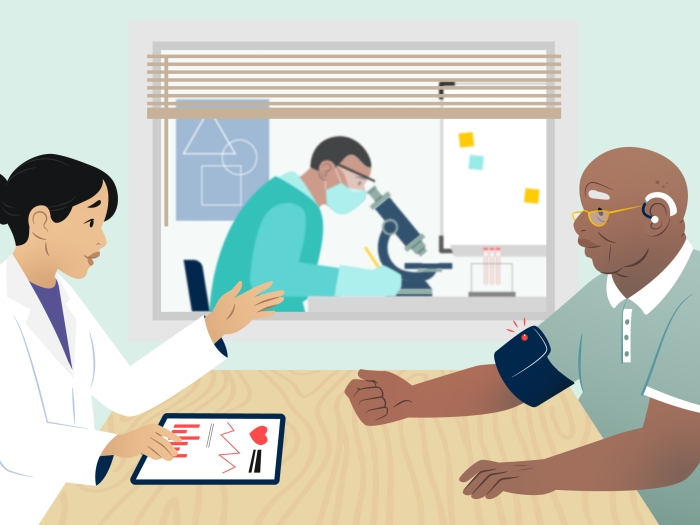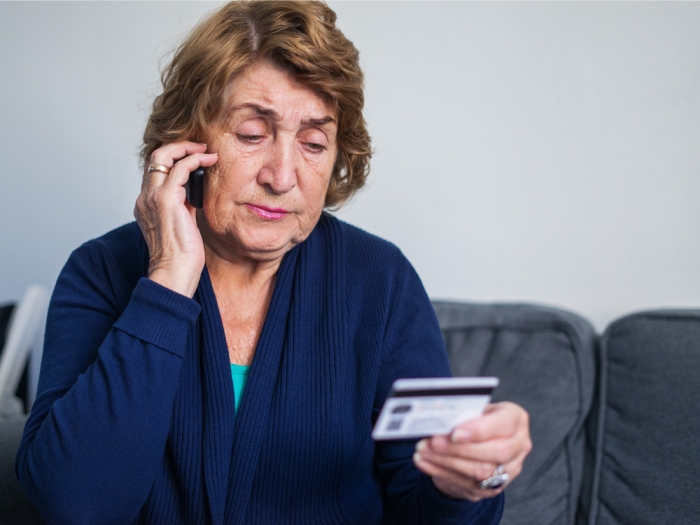Study reveals complex answers in people over age 50, but point to intertwined nature of looks, experiences, and physical and mental health
Author |

Every year, millions of older Americans spend money and time to try to look younger than they are. They color graying hair, buy anti-balding products, use teeth whiteners and wrinkle fillers, and much more.
Now, a new study looks at what this kind of effort means for older adults’ experiences with the ageism that pervades American society. The study also explores how a person’s perception of how old they look relates to both their positive and negative age related experiences, and their physical and mental health.
In all, 59% of adults age 50 to 80 say they think they look younger than other people their age. The percentage was slightly higher among women and among people with higher incomes, more years of education and current employment.
On the other end of the spectrum, only 6% of older adults said they look older than other people their age. The rest said they look about the same as their peers. A slightly higher percentage of those who were ages 50 to 64 said they look older than their peers, compared with those ages 65 to 80.
As for trying to look younger, the study finds that about one-third of older Americans (35%) have invested time or money toward this goal. Those more likely to say they’d done so included women, those with higher incomes and people of Hispanic origin.
SEE ALSO: Ageism and health: Study shows close link
The study, based on data from a national survey conducted for the University of Michigan National Poll on Healthy Aging, is published in the journal Psychology and Aging by a team from the University of Oklahoma, Norman and Michigan Medicine, U-M’s academic medical center.
In addition to asking about appearances, the poll asked older adults about both positive and negative experiences related to aging and ageism. Positive ones included being asked for advice and wisdom, and feeling a strong sense of purpose, while negative ones included having others assume they have difficulty seeing, hearing, remembering or using technology.
Those who feel they look younger than other people their age were more likely to score higher on the scale of positive age related experiences, and lower on the scale of negative ageism experiences.
Those who said they had invested time or money in looking younger were more likely to score higher on the positive scale too; this was especially true for those who are married or have a partner.
Does investment pay off?
However, the news for those who had tried to look younger wasn’t all rosy. Those who said they had invested in strategies to look younger were also more likely to score higher on the scale of negative experiences related to aging. This relationship was especially strong for non-Hispanic Black and White respondents but not for Hispanic respondents.
Meanwhile, those who say they look older than others their age were much more likely to score higher on the negative ageism experiences scale, and lower on the positive age related experiences scale.
The study also looks at how someone’s self reported health status related to their experiences around aging.
Overall, those who had more positive and fewer negative experiences related to aging were also more likely to say they’re in good or very good health, both physical and mental.
Nuanced results
The higher someone’s score on the positive experiences scale, the more likely they were to also say they were in good mental and/or physical health. But the higher someone’s score on the negative ageism experiences scale, the more likely they were to also say that they are in fair or poor physical and/or mental health.
“Taken together, these findings suggest a complex and nuanced relationship between how older adults feel about their age related appearance and the experiences they have, both positive and negative, related to their age,” said first author Julie Ober Allen, Ph.D., M.P.H., of the Department of Health and Exercise Science, University of Oklahoma, Norman.
Allen worked on the survey during her time as a postdoctoral fellow at the Population Studies Center at U-M’s Institute for Social Research. She adds, “Feelings and experiences of ageism, which are rooted in our society’s emphasis on youthfulness and bias against aging, appear to indirectly have a relationship with health, both mental and physical.”
The researchers note that the difference between the percentage who feel they look young for their age, and the percentage who said they had spent money or time to look younger, itself may reflect both the pervasive bias against aging, and the specific bias against admitting that one has done something to change appearances, especially among men.
Advice for clinicians
The findings suggest that while clinicians and public health authorities should be cautious about reinforcing beliefs that signs of aging are undesirable, they can help adults understand ways that health choices with implications for age related aspects of appearance may also reduce their likelihood of experiencing both age related discrimination and poor health outcomes later in life, adds poll director and co-author Jeffrey Kullgren, M.D., M.S., M.P.H., a primary care provider at the VA Ann Arbor Healthcare System and U-M internal medicine associate professor.
“We know that healthier eating, more physical activity, better sleep, stress reduction techniques, preventive oral hygiene, use of sunscreen, and reducing or eliminating use of tobacco, alcohol and other substances can all impact appearance later in life, as well as physical and mental health,” he said. “And many of these interventions are less costly, or at least more evidence based, than the many commercial products and services that claim to reduce signs of aging.”
The team previously published a report on some of the poll data. The data formed the basis for two scales used in the new study – one based on how adults responded to statements about positive experiences related to aging, and one on 10 negative statements about their age related experiences and perceptions. This latter scale has been published as a standardized Everyday Ageism Scale that any researcher can use.
Additional authors: In addition to Allen and Kullgren, the study’s authors are Valerie Moïse, M.S., Marshall K. Cheney, Ph.D. and Daniel Larson, Ph.D. of the University of Oklahoma, Norman, and Erica Solway, Ph.D., Preeti N. Malani, M.D. and Dianne Singer, M.P.H. of U-M and IHPI.
Funding: The poll data come from a national survey of more than 2,000 people between ages of 50 and 80 conducted in 2019. The National Poll on Healthy Aging is based at the U-M Institute for Healthcare Policy and Innovation and supported by AARP and Michigan Medicine.
Citation: How Old Do I Look? Aging Appearance and Experiences of Aging Among U.S. Adults Ages 50–80, Psychology and Aging, https://psycnet.apa.org/fulltext/2024-58254-001.html
Sign up for Health Lab newsletters today. Get medical tips from top experts and learn about new scientific discoveries every week by subscribing to Health Lab’s two newsletters, Health & Wellness and Research & Innovation.
Sign up for the Health Lab Podcast: Add us on Spotify, Apple Podcasts or wherever you get you listen to your favorite shows.

Explore a variety of health care news & stories by visiting the Health Lab home page for more articles.

Department of Communication at Michigan Medicine

Want top health & research news weekly? Sign up for Health Lab’s newsletters today!





